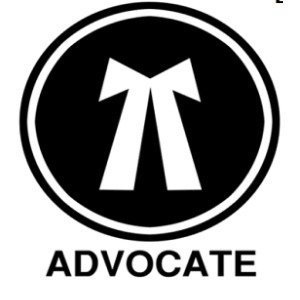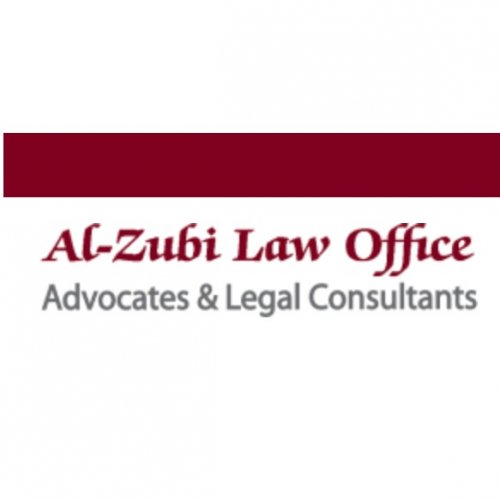Best Tax Increment Financing Lawyers in Ramallah
Share your needs with us, get contacted by law firms.
Free. Takes 2 min.
List of the best lawyers in Ramallah, Palestine

Istikamah For Advocates And Legal Services - استقامة للمحاماة والخدمات القانونية
15 minutes Free ConsultationAbout Tax Increment Financing Law in Ramallah, Palestine
Tax Increment Financing (TIF) is a public financing method that is used to support economic development projects in specific areas. In Ramallah, Palestine, TIF is employed to boost urban development and infrastructure by financing redevelopment projects without directly burdening the taxpayers. By capturing the future tax increments derived from an increase in property values due to improved infrastructure and services, TIF allows local governments to fund redevelopment projects.
Why You May Need a Lawyer
Engaging a lawyer knowledgeable in TIF is crucial for several reasons. Legal expertise can assist in navigating the complexities of TIF agreements, understanding the rights and obligations of involved parties, compliance with local regulations, and aligning development goals with public policy objectives. Common situations where legal help might be needed include negotiations related to project financing, disputes over property valuations, and ensuring adherence to contractual obligations in TIF-related projects.
Local Laws Overview
In Ramallah, TIF is governed by various local development statutes and municipal guidelines aimed at fostering economic growth. Key aspects of these laws include the designation of special development areas, the calculation of the tax increment base, permissible uses of TIF funds, and reporting requirements to ensure transparency and accountability. These regulations ensure that TIF projects align with overall municipal development strategies and serve the public interest.
Frequently Asked Questions
1. What is the primary goal of TIF in Ramallah?
The primary goal is to stimulate economic development and improve infrastructure in designated areas by using the future increased tax revenues generated from these developments.
2. How does TIF affect my property taxes?
Typically, property owners do not see immediate increases in their taxes due to TIF. Instead, taxes are frozen at the pre-development level, and the increment created by increased property values goes toward funding the redevelopment.
3. Can TIF be used for residential projects?
Yes, TIF can fund a variety of projects, including residential developments, especially those that align with urban revitalization goals in Ramallah.
4. What are the risks associated with TIF projects?
Risks include the potential for inadequate future tax revenues to cover debt obligations, which could then impact municipal budgets.
5. Are businesses required to participate in TIF projects?
No, businesses located within a TIF district are typically not obliged to participate. However, they may benefit from infrastructure improvements and increased property values.
6. How long do TIF plans typically last?
TIF plans can last up to 20 or 30 years, depending on the financing agreement and the time needed to pay back bonds issued for the development.
7. Who is in charge of overseeing TIF projects?
Local government entities in Ramallah, along with specialized development agencies, oversee the implementation and compliance of TIF projects.
8. Is public approval required for TIF projects?
Yes, TIF projects usually require some form of public input or approval to ensure community interests are considered.
9. Can TIF funds be used for non-infrastructure related expenses?
TIF funds are generally earmarked for infrastructure and improvements that promote redevelopment but can, at times, be allocated for related development expenses with proper oversight.
10. What happens if a TIF project does not go as planned?
Should a project fail to meet expectations, local governments may need to adjust their financial strategies, but this highlights the importance of consulting with legal and financial experts before engaging in TIF projects.
Additional Resources
For further resources, consider consulting the Local Government Ministry in Ramallah, economic development agencies, or professional legal associations with expertise in municipal finance and development. These organizations can provide guidance and support for those involved in or impacted by TIF projects.
Next Steps
If you need legal assistance with TIF, start by consulting with a lawyer who has experience in municipal finance and real estate law. Collect relevant documentation and details about your involvement in TIF projects. Consider reaching out to local legal aid organizations for support, and attend informational workshops or public meetings related to TIF in Ramallah.
Lawzana helps you find the best lawyers and law firms in Ramallah through a curated and pre-screened list of qualified legal professionals. Our platform offers rankings and detailed profiles of attorneys and law firms, allowing you to compare based on practice areas, including Tax Increment Financing, experience, and client feedback.
Each profile includes a description of the firm's areas of practice, client reviews, team members and partners, year of establishment, spoken languages, office locations, contact information, social media presence, and any published articles or resources. Most firms on our platform speak English and are experienced in both local and international legal matters.
Get a quote from top-rated law firms in Ramallah, Palestine — quickly, securely, and without unnecessary hassle.
Disclaimer:
The information provided on this page is for general informational purposes only and does not constitute legal advice. While we strive to ensure the accuracy and relevance of the content, legal information may change over time, and interpretations of the law can vary. You should always consult with a qualified legal professional for advice specific to your situation.
We disclaim all liability for actions taken or not taken based on the content of this page. If you believe any information is incorrect or outdated, please contact us, and we will review and update it where appropriate.
















